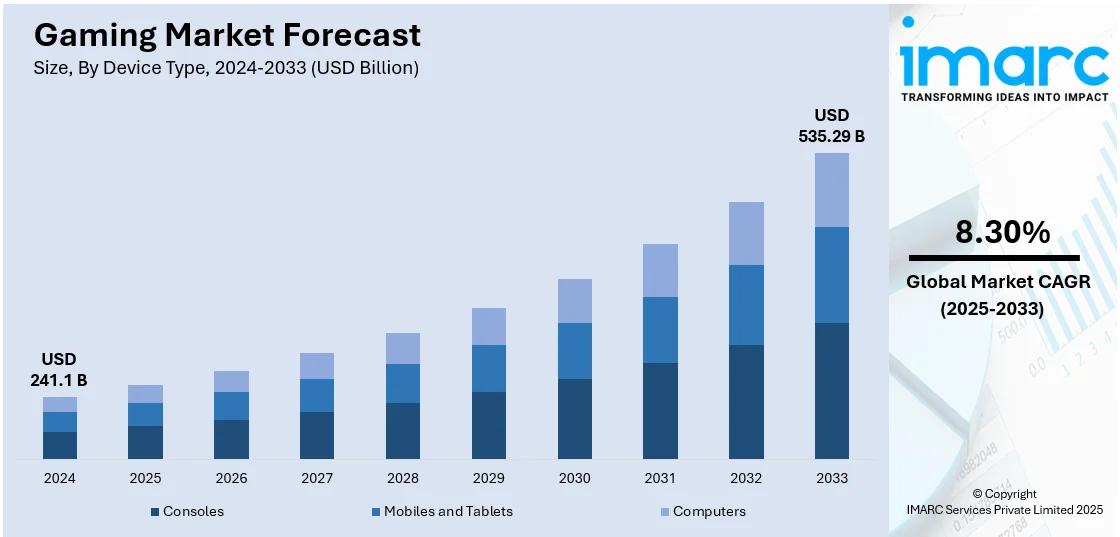Your Ultimate Hookup Resource
Explore a comprehensive directory for connections and relationships.
Gaming Trend Forecasting: Predicting What’s Next in the Virtual Playground
Discover the future of gaming with bold predictions and trends that will shape your virtual playground! Don't miss out on what's next!
The Future of Gaming: Top Trends to Watch in the Next 5 Years
The gaming industry is on the brink of a revolutionary shift, and over the next five years, several trends are expected to shape its future. First, the rise of cloud gaming is set to redefine how players access and enjoy their favorite titles. With platforms like Google Stadia, NVIDIA GeForce Now, and Xbox Cloud Gaming gaining traction, players will no longer need high-end hardware to experience AAA games. This trend towards accessibility will lead to an explosion in the gaming demographic, as more users can participate from a wider variety of devices, including smartphones and smart TVs.
Additionally, the fusion of virtual reality (VR) and augmented reality (AR) technology is positioned to transform gaming experiences. As hardware becomes more affordable and programming tools become increasingly user-friendly, developers are creating immersive worlds that blur the lines between digital and physical realms. According to industry forecasts, VR and AR gaming revenue is expected to soar, prompting gaming studios to invest heavily in these technologies. Furthermore, the integration of artificial intelligence will enhance game design, leading to more personalized and dynamic gameplay experiences.

Counter-Strike is a popular team-based first-person shooter that has captivated gamers around the world. Players join either the terrorist or counter-terrorist team, engaging in intense battles across various maps. For those looking to enhance their gaming experience, using a clash promo code can offer exciting benefits.
How Emerging Technologies Are Shaping the Future of Video Games
The world of video games is undergoing a seismic shift as emerging technologies revolutionize the way games are designed, developed, and played. Innovations such as virtual reality (VR) and augmented reality (AR) are immersing players in unprecedented ways, allowing them to experience games like never before. Furthermore, advancements in artificial intelligence (AI) are creating more dynamic in-game behaviors and challenges, making each playthrough uniquely engaging. For instance, AI-driven NPCs (non-player characters) can adapt to players’ strategies, providing a personalized gaming experience that keeps users coming back for more.
Moreover, the integration of cloud gaming platforms is shaping the future of the industry by allowing players to access high-quality gaming experiences without the need for expensive hardware. Services like Google Stadia and NVIDIA GeForce NOW enable gamers to stream titles seamlessly across devices, promoting a more inclusive gaming community. As these emerging technologies continue to evolve, they not only enhance gameplay mechanics but also influence game narratives and design philosophies, paving the way for innovative storytelling techniques. The future of video games is rich with possibilities, and with each technological advancement, players can look forward to an even more thrilling and immersive landscape.
What Will Gaming Look Like in 2030? Key Predictions and Insights
As we look ahead to 2030, the landscape of gaming is poised for transformative changes driven by advancements in technology and shifting user preferences. One significant trend is the rise of cloud gaming, which will likely eliminate the need for high-end gaming consoles and PCs. Players will be able to access games instantly through streaming platforms, enabling them to play on a variety of devices including smartphones and smart TVs. This evolution is expected to democratize gaming, making it more accessible to a larger audience and changing the way we think about gaming hardware.
In addition to cloud gaming, virtual reality (VR) and augmented reality (AR) technologies are set to redefine immersive experiences, allowing players to engage with their favorite games in ways previously thought impossible. By 2030, we can anticipate fully immersive worlds where players can interact with environments and narratives on a deeper level. As AI and machine learning continue to advance, we may also see adaptive gameplay that tailors challenges and storylines to individual players, providing a personalized gaming experience that keeps users engaged and invested.